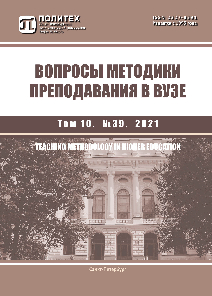THE CORE AND STRUCTURE OF THE PROFESSIONAL COMPETENCE OF AN ENGLISH LANGUAGE TEACHER IN A MARITIME UNIVERSITY
Abstract. The modern requirements to the level of qualification of a university lecturer are determined, first of all, by high requirements to the quality of modern education. University graduates training directly depends on the level of competence of the faculty. Special requirements to a lecturer who teaches deck officers, crew members and other maritime specialists are determined by navigation safety. The purpose of this paper is to outline the professional competence of a maritime university lecturer in modern conditions. The study presents the results of a pilot study involving teachers of professionally oriented (maritime) English from major maritime universities in Russia. The main research methods implemented are: theoretical analysis, survey, questionnaires, and interviews. The authors outline the structure of professional competence of the maritime university EFL teacher, which includes subject-linguistic, pedagogical, motivational, communicative, axiological, research and organizational competences. The authors also identify the fundamental and the least important competences from the teachers' point of view. According to the respondents' opinion, for ESP teachers their subject, professional field of application of the English language is the most important as well as skills, techniques, tools and modern approaches in the field of teaching methodology. To a lesser extent teachers consider it necessary to be engaged in research (publication) activities, although they admit that it is an essential element of professional profile of a modern university lecturer.



